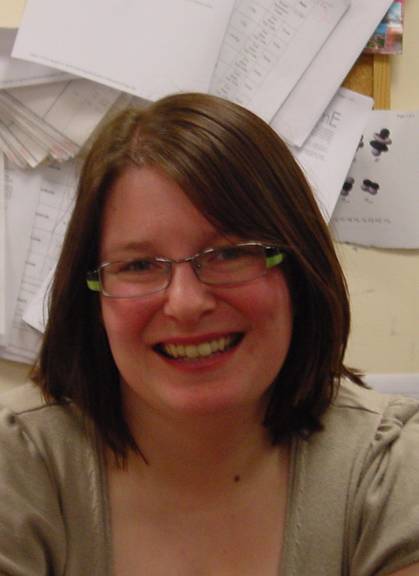Helen Ryder - FSTG Secretary / InForm Project Manager
 |
Helen completed her MEng in Chemical Engineering from UMIST, The University of Manchester Institute of Science and Technology, in 2003. In 2007 she obtained her PhD at The University of Manchester working on ‘The Behaviour of Surfactant Lamellar and Gel Phases Under Flow’. Subsequent work as a research associate on a number of interdisciplinary projects has involved collaborations with both academic and industrial institutions. Helen’s expertise is in colloidal chemistry, specifically formulated products, and she is currently the Project Manager for InForm and secretary for the Formulation Science and Technology interest group of the Royal Society of Chemistry. |
InForm
InForm stands for Integrating Nanomaterials in Formulations and is a partnership between 17 world-leading institutions which will bring together the scientific knowledge of formulation of nanomaterials and then pass this knowledge on. InForm will create appropriate platforms for dissemination between researchers from Europe, USA and Asia-Pacific working in academia, public research laboratories and industry in order to identify and enhance complementary interests. InForm is a 3 year funded project and started in July 2009. It will host annual events, NanoFormulation2010 (Stockholm), 2011 (Singapore) and 2012 (Barcelona) and the activities are distributed between six main thematic lines that are of fundamental importance to formulation science: formulation of biological nanomaterials, handling of nanopowders, processing and stabilization of nanoparticle suspensions, physical chemistry at the nanoscale, formulation of thin films and the health and safety aspects of nanomaterials. Further information can be found on the project website: http://www.nanoformulation.eu/
The University of Manchester
The University of Manchester is a world-leader in higher education and research. The School of Chemical Engineering and Analytical Science offers students both undergraduate and postgraduate courses, as well as providing researchers and academics with state-of-the-art analytical equipment and unrivalled facilities, including the pilot-scale Morton Laboratory. The School undertakes leading-edge multidisciplinary, creative, innovative, and relevant research on distinctive topics including nanomaterials and interfaces, complex chemical and biological systems and molecular modelling, simulation and design.

